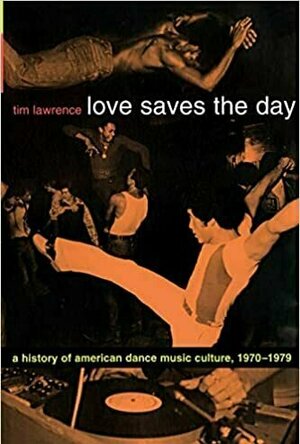Love Saves the Day: A History of American Dance Music Culture
BookThis item doesn’t have any media yet
2004 | Music & Dance
Disco is the music that America tried to forget. By the end of the 1970s "Saturday Night Fever" rocketed through the marketing stratosphere, Studio 54 was dominating the front pages, and the charts were controlled by the likes of the Bee Gees, Donna Summer, and the Village People. But then radio talk jock Steve Dahl publicly detonated a pile of 40,000 disco records during the interval of a Chicago White Sox double-header in July 1979, and by the end of the year some 20,000 discotheques had hastily closed. Opening with David Mancuso's seminal "Love Saves the Day" Valentine's party in February 1970, Tim Lawrence presses the rewind button and tells the definitive story of disco - from its murky subterranean roots in NoHo and Hell's Kitchen to its gaudy blossoming in midtown Manhattan to the out-of-town networks that emerged in the suburbs and alternative urban hotspots such as Boston, Chicago, Los Angeles, Miami and New Jersey.Tales of nocturnal journeys, radical music making, and polymorphous sexuality flow through the arteries of "Love Saves the Day" like liquid vinyl. They are interspersed with a detailed analysis of the era's most powerful DJs, the venues in which they played, and the records they loved to spin. "Love Saves the Day" includes material from over three hundred original interviews with the scene's most influential players, including John 'Jellybean' Benitez, Michael Cappello, Ken Cayre, Alec Costandinos, Steve D'Acquisto, Michael Fesco, Rochelle Fleming, Francis Grasso, Alan Harris, Loleatta Holloway, Francois Kevorkian, Frankie Knuckles, David Mancuso, Vince Montana, Giorgio Moroder, Tom Moulton, Steve Ostrow, Marvin Schlachter, Nicky Siano, Judy Weinstein, Robert Williams and Earl Young. It also contains a series of specially compiled discographies and a unique collection of more than seventy rare photos.
Related Items:
| Published by | Duke University Press Books |
Images And Data Courtesy Of: Duke University Press Books.
This content (including text, images, videos and other media) is published and used in accordance
with Fair Use.
